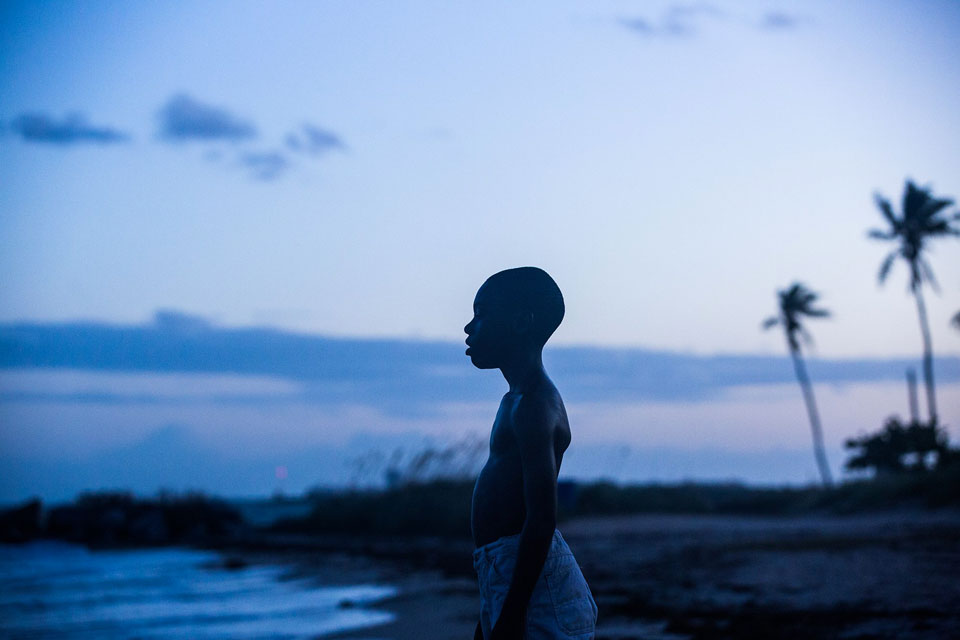
Chiron, one of the three stages we see of the young man’s life, gazes out to sea.
Coming of age film Moonlight deals with the life of a young man as he tries to find his place in the world.
Identity is such a powerful concept. It defines who we are and how we see ourselves. Once we’ve figured it out, it can determine our path in life. But what happens when who we are clashes with what’s expected of us? This is what Moonlight is about. The film tells the story of a young African American man in a desperate search for identity in three separate stages of his life.
In the first part, nine-year-old Chiron, growing up in a rough Miami neighbourhood during the 1980s, realises that there’s something about him that bothers other kids his age. Combined with the negligence of his drug addicted mother, ostracisation pushes him into a corner of despair.
Chiron finds a father-like figure in the neighbourhood’s drug dealer, Juan, who shows him compassion and direction when he needs it most. Juan warns the young Chiron about the cruel world that awaits when he grows up, stressing the importance of being true to himself. “At some point you gotta decide for yourself who you’re gonna be”, Juan explains.
“Am I a faggot?,” Chiron asks in the first of many instances where he is confronted with the question of who he is and what the world demands that he be. From those first questions, the audience witnesses the growing pains of a deeply troubled protagonist who is on a quest to come to terms with his own nature, despite the harsh environment he lives in.
In the second and third acts of the film we see Chiron step into adulthood, always fighting an internal battle, always yearning for love and companionship.
Make no mistake. This film cannot be reduced to short taglines like “coming-of-age”, “black struggle” or “gay angst.” This is a story that deals with the essential concerns of human existence while exploring concepts of masculinity, empathy and character in such a powerful, universal way that it’s able to resonate with viewers of any background.
Moonlight is based on the autobiographical play In Moonlight Black Boys Look Blue by Tarell Alvin McCraney. Director Barry Jenkins, who grew up in the same area as McCraney, adapted the work to deliver this undeniably brilliant piece of filmmaking. His style of shooting is sharp and extremely well calculated. In some of the vital dialogue scenes, he places the camera directly in front of the actor, making it feel like the audience is inside the other character’s head.
Each third of the film has a similar structure – the viewer can feel tension building in Chiron’s mind until it finds a releasing pivotal moment. The final act is the most subdued, and yet the most compelling. The music score is, of course, perfectly chosen to match the bold and simultaneously heartwarming cinematography.
Chiron is portrayed by three different actors who don’t really look alike, but that becomes irrelevant when we see their interpretations and how the director manages to extract a consistent incarnation of the main character in each of them. Naomi Harris, who plays Chiron’s mother, and Mahershala Ali, who plays Juan, deliver superb performances during their short appearances.
Moonlight is set to be released in Colombian theatres on February 23, a few days before the Oscars. It might not get as many statuettes as the super popular La La Land, but it surely deserves the top honours.
5/5 stars





